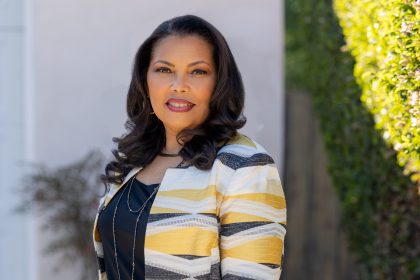A few years ago I participated in a fitness program that helped me lose 30 pounds. For the record I gained it all back, an explanation for that is for a different post. Recently I completed a Ten Day Celebrity cleanse and lost 10 pounds. That’s pretty awesome right? I think it is and I don’t plan to gain it back. I’m just like most people in the world today who understand how important it is to be healthy and physically fit. Those of us who understand the importance of this take the necessary steps to change our lifestyle and make the proper changes that are going to help us get to our ultimate goal of optimum health and physical fitness.
Once the decision is made to move forward and a serious state of mind is developed the end result and our success is just a formality. In these moments like most moments in our lives it is about the journey and not the end result.
However; when it comes to finances a large segment of society is maneuvering without any direction or purpose. Financially we may tend to allow things to happen on auto pilot because of the lack of knowledge and discipline. It is just as important to be financially fit.
- Create a budget
It is important to be aware of what is coming in and what is going out when it comes to your finances. Creating a budget gives you an upfront and personal view of how you are spending your money and where you are spending your money.
It comes down to prioritizing your wants versus your needs. When you have a full picture of your spending habits, it provides perspective and insight as to how your money is spent and what adjustments you may have to make to ultimately meet your goals.
- Open a checking account
This may seem like a no brainer, but you would be surprised at how many individuals do not have checking accounts for whatever reason. I spoke to a gentleman recently who is 90 years old, and he has never had a checking account.
The most basic reason to do this is because this is the easiest way for you to keep track of your spending. Having access to your transactions in real time allows you to keep your finger on the pulse of your account, essentially monitoring the activity.
- Set up direct deposit
When direct deposit was implemented way back when, many people were skeptical. The arguments of “I want to see my check” or “I want to hold my check in my hands” were very popular. They were so popular that a distrust for direct deposited was developed. This was to the benefit of currency exchanges. In most cases if you do not have a bank account and you do not have direct deposit, you must cash your check at one of these currency exchanges. Dependent on the amount of the check a certain percentage is charged to the customer. When you factor in traveling costs and parking, the thought of not having direct deposit is very costly.
Setting up direct deposit saves you time and money, and if you want to see your check as well as feel it in your hand, you can go to your company’s internal HR website and print it out while saving money at the same time.
- Set up online and mobile banking
The world we live in now moves at a fast pace. Money is exchanged without physical interaction so it is imperative to keep track of your spending to the penny.
If you have a smart phone and a bank account, download your bank’s app and manage your account with it. Most banks have apps that allow you to receive alerts based on balances and activity. Mobile apps usually do not offer all of the functions of the full site, so for more involved transactions or investigation, access your bank’s full website.
By using these tools, your money is always in the palm of your hand.
- Set up an automatic transfer to your savings account
In my experience it’s always easier for me to save money when I don’t necessarily “see it.” The way I manage this is by setting up an automatic transfer of $25 from my checking to my savings weekly. Over the course of 56 weeks that $25 will turn into $1,400. Many banks have savings accounts with restrictions that don’t allow you to withdraw or transfer the funds unless you physically go into the bank. That kind of restriction encourages savings because not many people want to spend their time in teller lines at the bank to withdraw money.
These are just a few points that will help you get more financially fit. What are some of your ideas? What helps you? Share them in the comments below.
Eddy Precise Lamarre
Follow Precise on Twitter: @Precise_chi
Instagram: Precise_chi
Like Precise on Facebook : Precisemuzic
Follow the blog: Precisemuzic



















